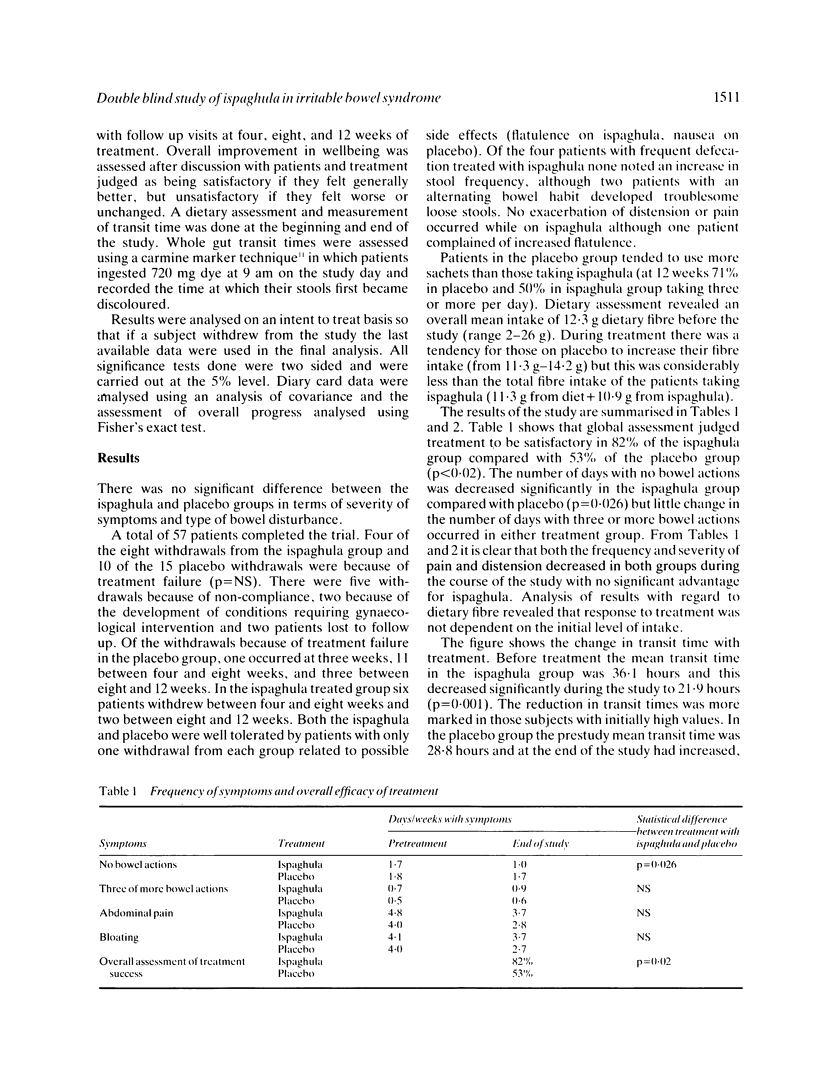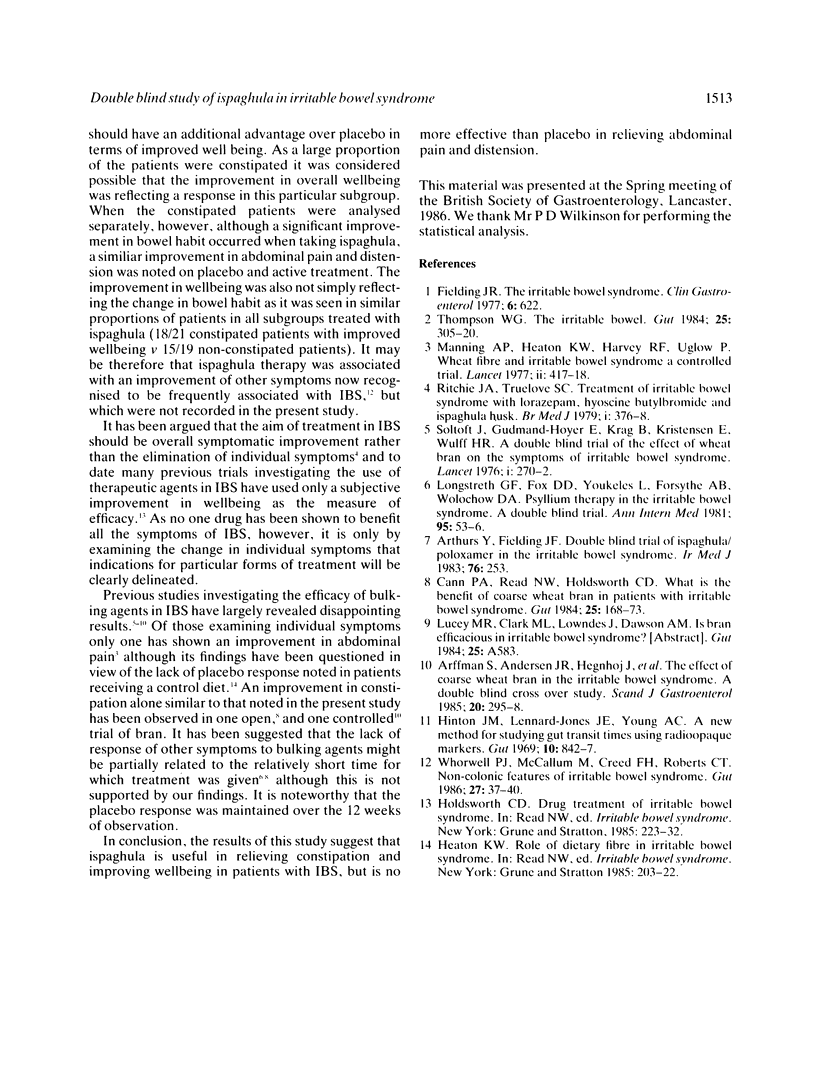Abstract
A double blind placebo controlled trial of ispaghula husk in 80 patients with irritable bowel syndrome is reported. Global assessment judged treatment to be satisfactory in 82% of patients receiving ispaghula and 53% of the placebo group (p less than 0.02). Bowel habit was unchanged in the placebo group, while constipation significantly improved in patients taking ispaghula (p = 0.026). Transit time decreased significantly in those taking ispaghula compared with placebo (p = 0.001), especially in patients with initially high transit times. Abdominal pain and bloating improved in both groups, with no significant differences between ispaghula and placebo. Four of the eight withdrawals on ispaghula and 10 of the 15 withdrawals on placebo were because of treatment failure. Ispaghula significantly improves overall well being in patients with irritable bowel syndrome, and in those with constipation favourably affects bowel habit and transit time.
Full text
PDF



Selected References
These references are in PubMed. This may not be the complete list of references from this article.
- Arffmann S., Andersen J. R., Hegnhøj J., Schaffalitzky de Muckadell O. B., Mogensen N. B., Krag E. The effect of coarse wheat bran in the irritable bowel syndrome. A double-blind cross-over study. Scand J Gastroenterol. 1985 Apr;20(3):295–298. doi: 10.3109/00365528509091653. [DOI] [PubMed] [Google Scholar]
- Arthurs Y., Fielding J. F. Double blind trial of ispaghula/poloxamer in the Irritable Bowel Syndrome. Ir Med J. 1983 May;76(5):253–253. [PubMed] [Google Scholar]
- Cann P. A., Read N. W., Holdsworth C. D. What is the benefit of coarse wheat bran in patients with irritable bowel syndrome? Gut. 1984 Feb;25(2):168–173. doi: 10.1136/gut.25.2.168. [DOI] [PMC free article] [PubMed] [Google Scholar]
- Fielding J. F. The irritable bowel syndrome. Part I: clinical spectrum. Clin Gastroenterol. 1977 Sep;6(3):607–622. [PubMed] [Google Scholar]
- Hinton J. M., Lennard-Jones J. E., Young A. C. A ne method for studying gut transit times using radioopaque markers. Gut. 1969 Oct;10(10):842–847. doi: 10.1136/gut.10.10.842. [DOI] [PMC free article] [PubMed] [Google Scholar]
- Longstreth G. F., Fox D. D., Youkeles L., Forsythe A. B., Wolochow D. A. Psyllium therapy in the irritable bowel syndrome. A double-blind trial. Ann Intern Med. 1981 Jul;95(1):53–56. doi: 10.7326/0003-4819-95-1-53. [DOI] [PubMed] [Google Scholar]
- Manning A. P., Heaton K. W., Harvey R. F. Wheat fibre and irritable bowel syndrome. A controlled trial. Lancet. 1977 Aug 27;2(8035):417–418. doi: 10.1016/s0140-6736(77)90605-5. [DOI] [PMC free article] [PubMed] [Google Scholar]
- Ritchie J. A., Truelove S. C. Treatment of irritable bowel syndrome with lorazepam, hyoscine butylbromide, and ispaghula husk. Br Med J. 1979 Feb 10;1(6160):376–378. doi: 10.1136/bmj.1.6160.376. [DOI] [PMC free article] [PubMed] [Google Scholar]
- Soltoft J., Krag B., Gudmand-Hoyer E., Kristensen E., Wulff H. R. A double-blind trial of the effect of wheat bran on symptoms of irritable bowel syndrome. Lancet. 1976 Feb 7;1(7954):270–272. doi: 10.1016/s0140-6736(76)91402-1. [DOI] [PubMed] [Google Scholar]
- Thompson W. G. The irritable bowel. Gut. 1984 Mar;25(3):305–320. doi: 10.1136/gut.25.3.305. [DOI] [PMC free article] [PubMed] [Google Scholar]
- Whorwell P. J., McCallum M., Creed F. H., Roberts C. T. Non-colonic features of irritable bowel syndrome. Gut. 1986 Jan;27(1):37–40. doi: 10.1136/gut.27.1.37. [DOI] [PMC free article] [PubMed] [Google Scholar]


